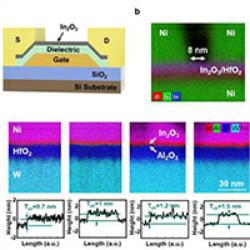March 25, 2022
Police warn of Apple Air Tags being used to track people
Apple Air Tags can be helpful if you've lost your keys or wallet. But police are now warning people to be careful because they've received reports of Air Tags being used to follow people without them knowing it.
The quarter-sized gadget can go anywhere and connect to your phone to locate the item you can't find.
The quarter-sized gadget can go anywhere and connect to your phone to locate the item you can't find.








